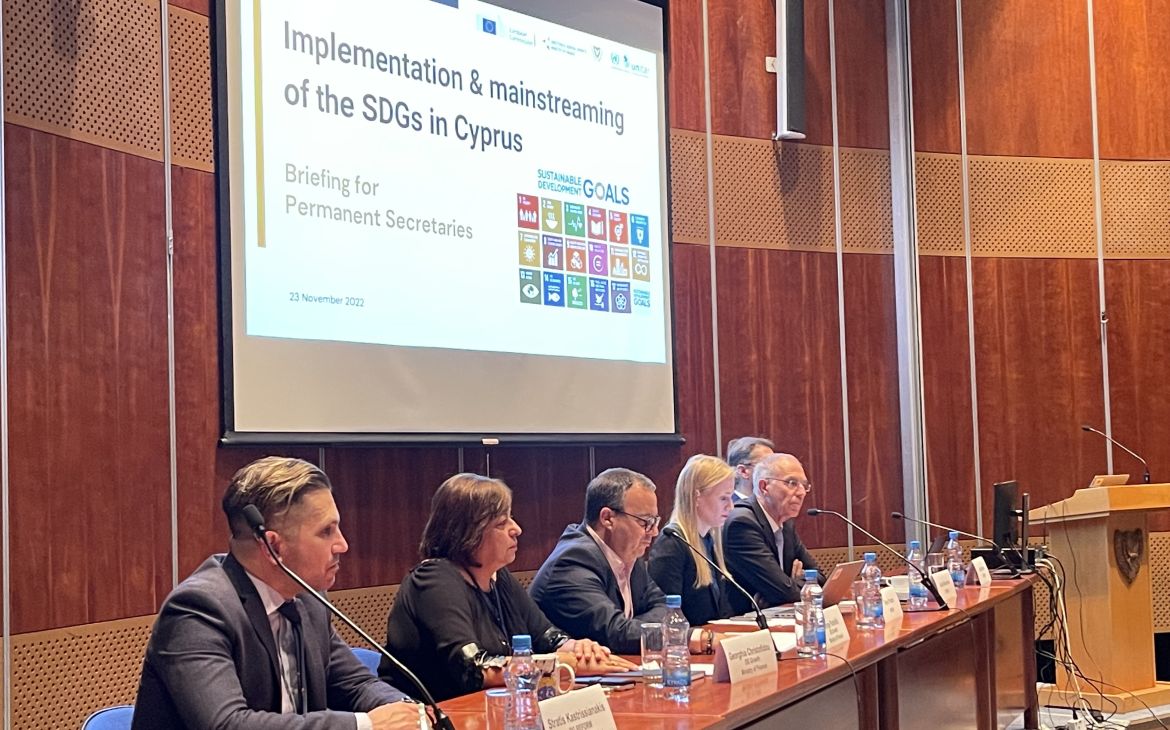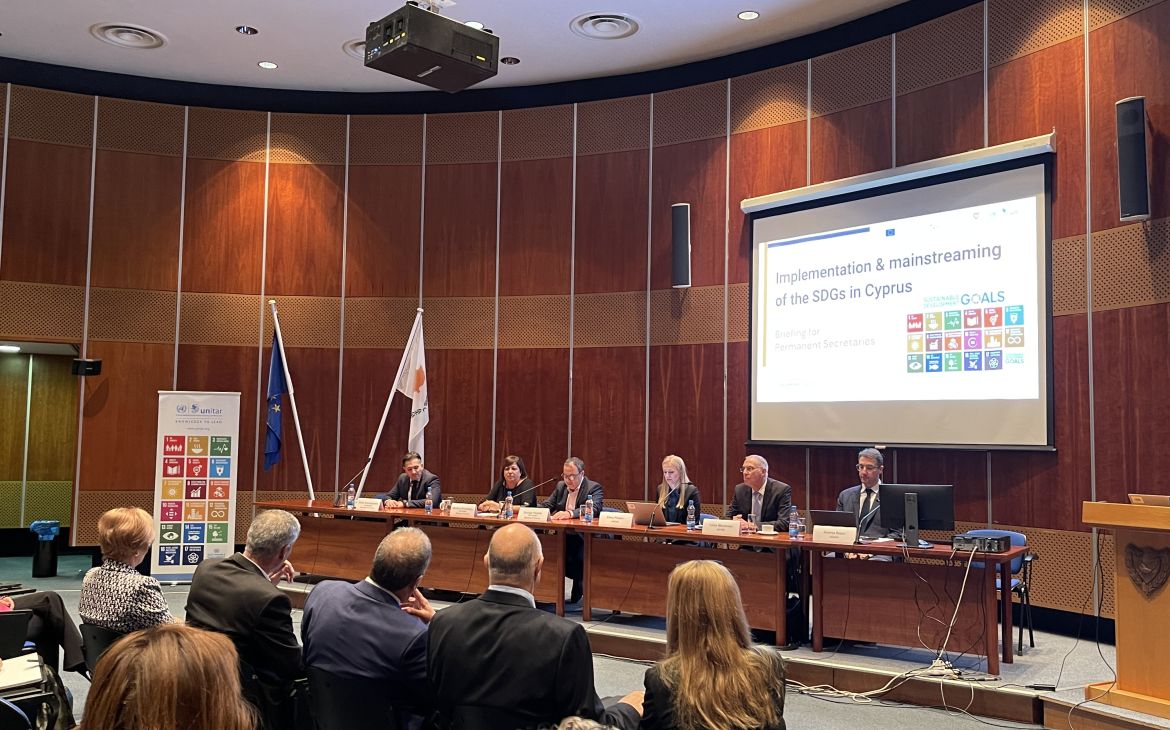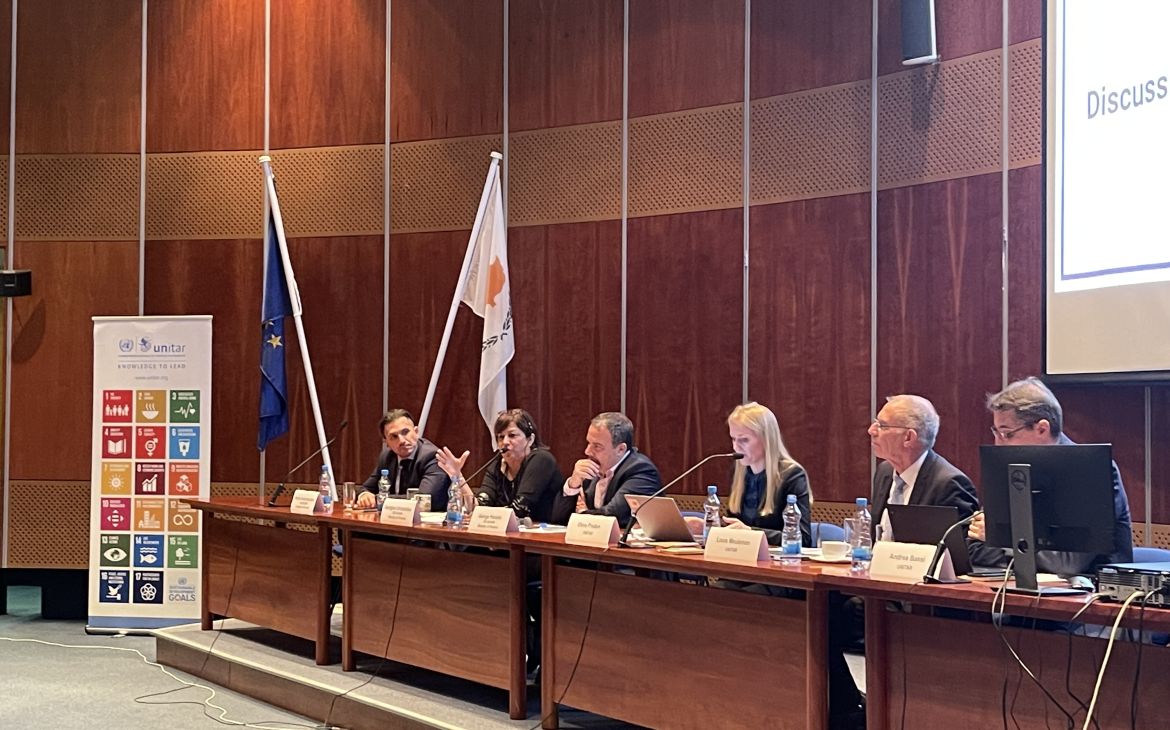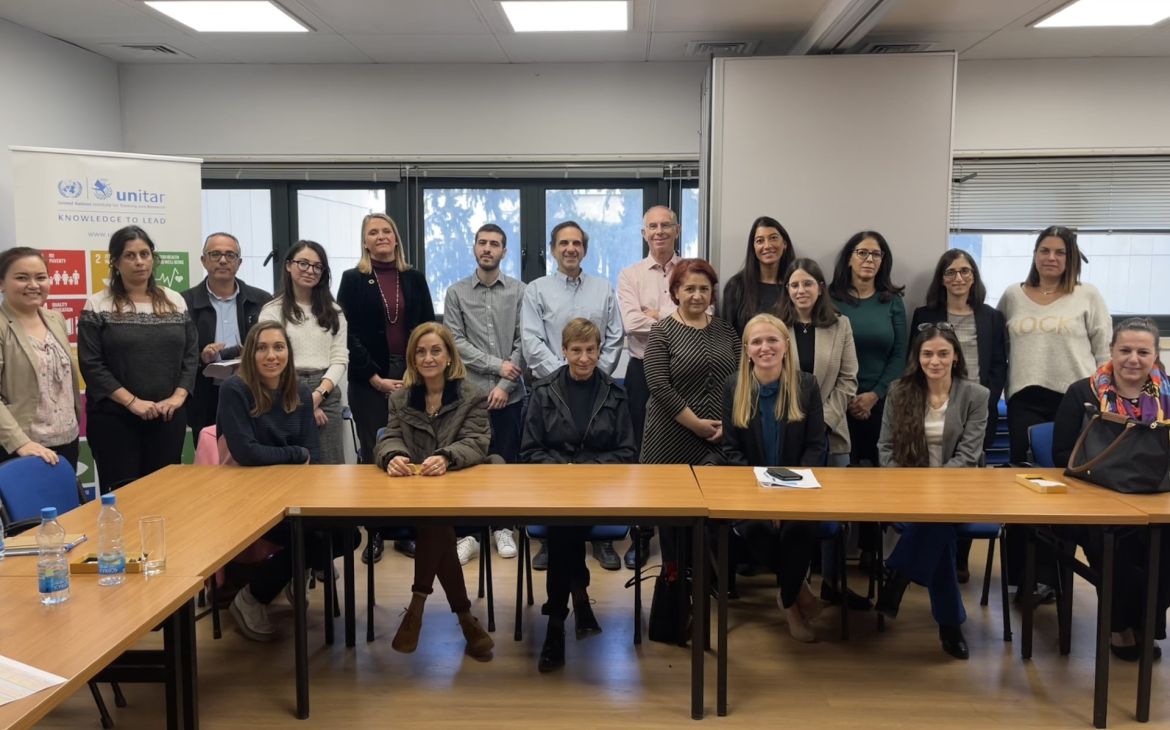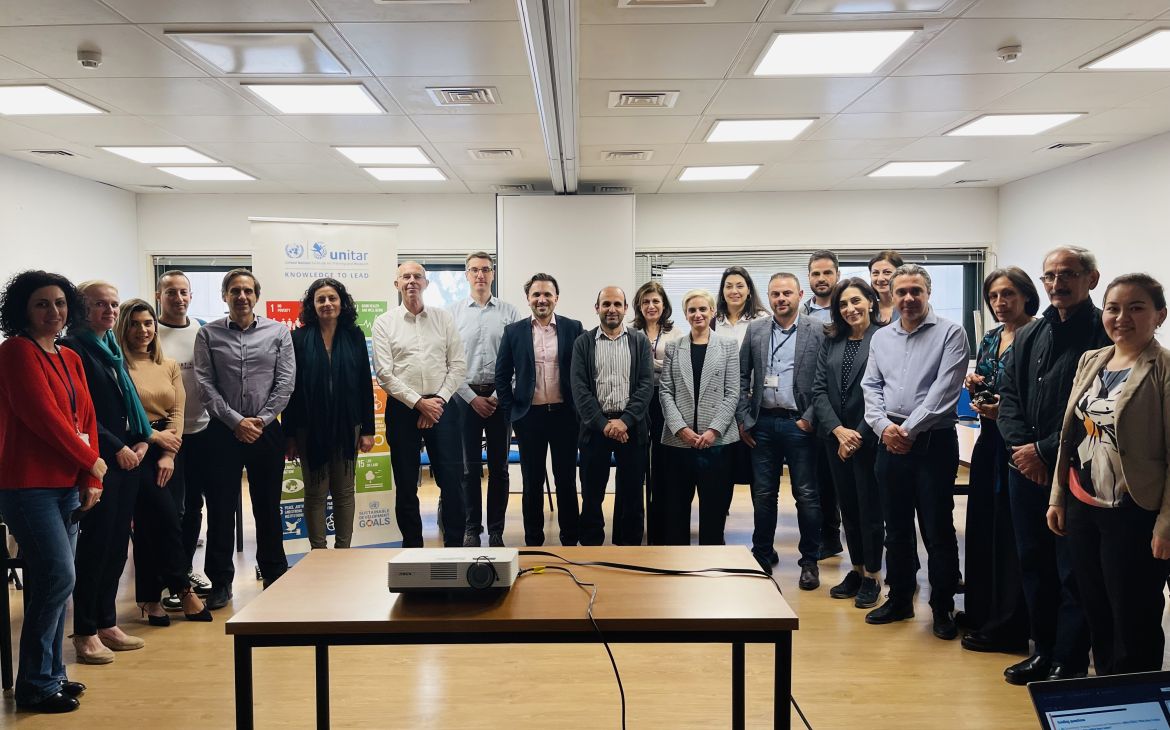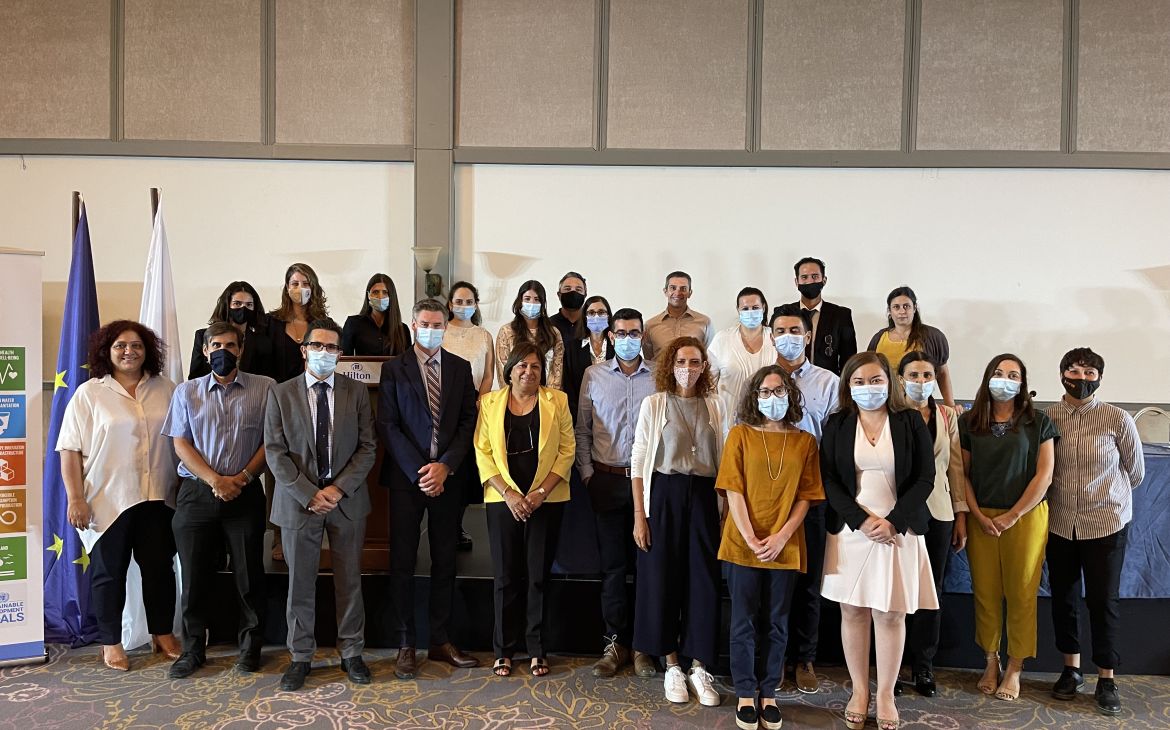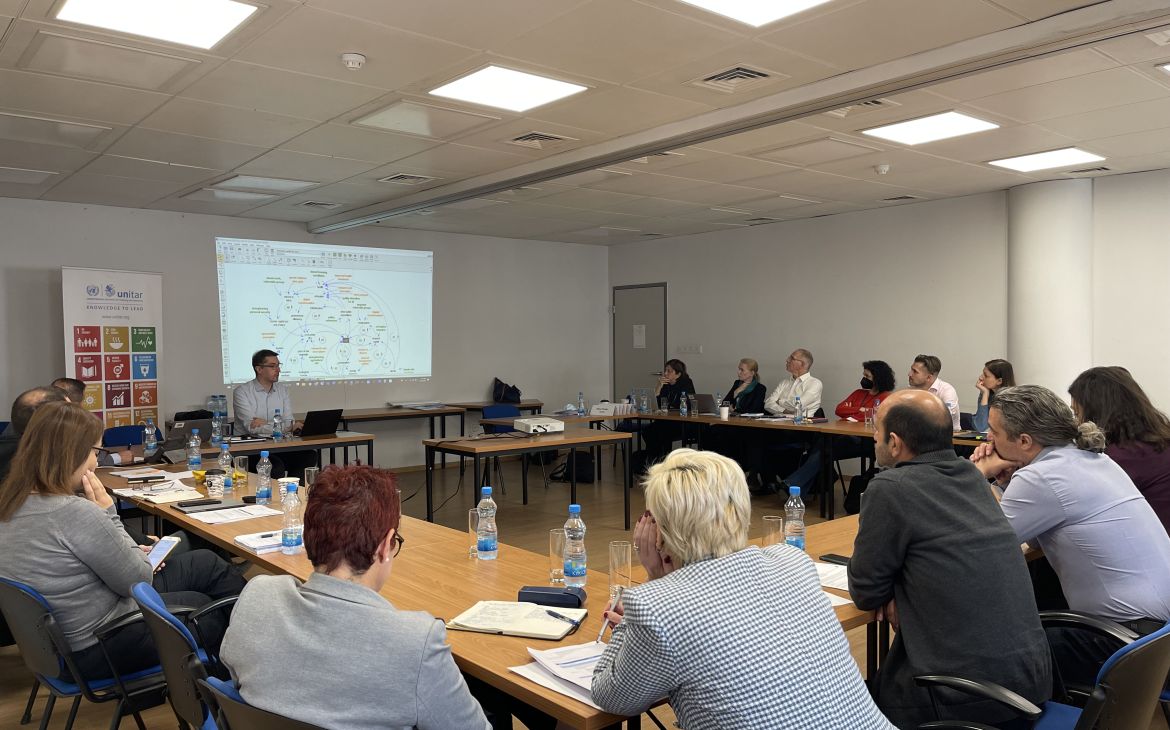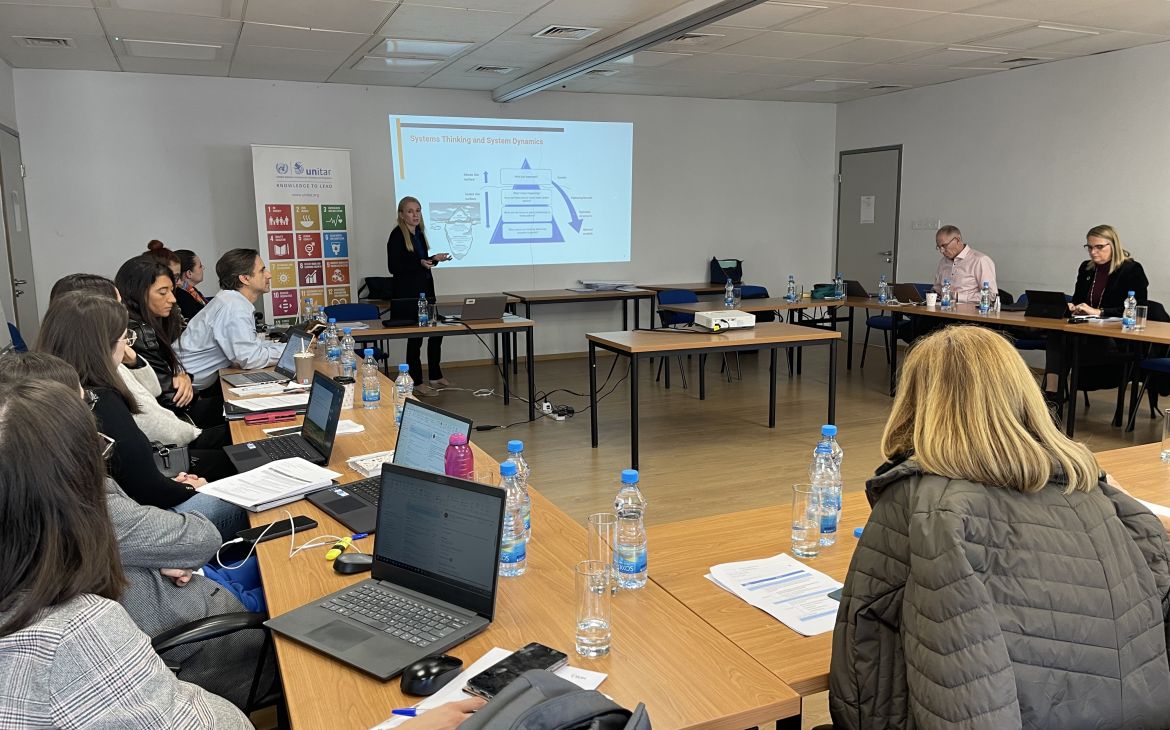January 2024 - In a collaborative endeavour spanning from December 2020 to February 2023, the UN Institute for Training and Research (UNITAR) joined forces with the Directorate-General for Growth within the Ministry of Finance in Cyprus and the DG Reform of the European Commission to execute a project generously funded by the European Commission, aptly titled "Implementation and Mainstreaming of the Sustainable Development Goals (SDGs) in the National Policy Framework" in Cyprus.
This undertaking sought to influence the broader sustainable development landscape in Cyprus. A Steering Group was assembled at the project's inception, comprising DG Growth and SDG Focal Points from the Cyprus government, alongside UNITAR and DG Reform to oversee the project's overall direction and offer valuable feedback.
The primary objective of the project was to make a substantial and enduring contribution to the advancement of the SDGs in Cyprus, encompassing various dimensions of sustainable development. Furthermore, the initiative was anticipated to support and align with key European Union (EU) priorities and long-term sustainable growth objectives, namely the "European Green Deal," the vision of "Europe Fit for the Digital Age," and the pursuit of a more inclusive and equitable European Union.
With this contextual understanding, the project's outputs were projected to yield the following outcomes:
- Outcome 1. Strengthened governance and coordination, as well as a robust strategic framework for the implementation of the SDGs in a nationally owned and integrated manner as part of national objectives aligned with EU priorities provide a clearer understanding of how social and environmental sustainability issues can be taken into account in the development of the new long-term sustainable growth strategy and deciding on the necessary horizontal reforms and developing the sectoral growth strategies.
- Outcome 2. An effective monitoring framework and coordination mechanism for guiding the implementation of SDGs in a transparent and accountable manner.
- Outcome 3. Strengthened capacities of government officials at various levels to align policies, programmes and work plans to ensure the implementation of the SDGs.
- Outcome 4. Broader awareness of the population and various stakeholders about SDGs and how they can support their implementation.
To realize these outcomes, the project carried out a number of activities. To kick off the process, it conducted a thorough analysis and produced an Inception Report, which served as a foundational assessment of SDG governance in Cyprus. This report also outlined an implementation plan for the project's deliverables, while presenting a preliminary comparative analysis of Cyprus's performance on Eurostat and SDSN SDG indicators in relation to EU medians, wherever data was available. It also facilitated a review of essential stakeholder lists and consolidated vital feedback and recommendations from the government regarding project execution.
Based on this groundwork, several key documents and activities have been produced/carried out:
- Report “Assessment of the existing SDG governance and policy framework in Cyprus”.
- SDG Action Plan for Cyprus for 2022-2025 with an Action Plan matrix.
- Report “Recommendations for the selection of appropriate national indicators, the setting of national targets across all SDGs and the coordination of monitoring activities” that includes an SDG Monitoring Framework for Cyprus.
- SDG training needs assessment and training programmes for civil servants and non-government stakeholders.
- SDGs for Civil Servants Guide.
- The report “National SDG Communication Strategy and Related Action Plan”.
And additionally:
An integrated Cyprus SDG Action Plan 2022-2025 as a stand-alone document summarizing findings and recommendations on better integrating social and environmental dimensions into the Long-term Strategy for Sustainable Growth for Cyprus Vision 2035.
The whole approach was truly participatory with the involvement of different stakeholders in each step of the way. Early in the project, 4 focus groups were organized with the government and other stakeholders that included civil society, academia, private sector. Additionally, 2 focus groups on social inclusion and green transition have been held. These focus groups as well as interviews conducted afterward informed the recommendations and the overall proposed governance and policy framework for mainstreaming the SDGs in Cyprus, which was validated during the first National SDG workshop on 11-12 October 2021. 38 Recommendations have been proposed for the areas below in the Governance report:
- Political commitment and strategy;
- Leadership and horizontal policy coordination;
- Vertical policy coordination and multi-level governance;
- Stakeholder participation and initiatives and role of Parliament;
- Knowledge, Monitoring, Reporting, Evaluation and Review, Mechanisms to integrate a long-term perspective;
- Mainstreaming SDGs in the national budget; Benefits and risks of digitalization for the implementation of the SDGs;
- Impact of COVID-19 on SDG implementation (incl. on recovery);
- Skills, competencies, and motivation of the public sector workforce;
- Mainstreaming environmental and social dimensions in the long-term growth strategy and sector strategies;
- Measuring policy coherence for sustainable development; and a
- Proposal for a governance framework for SDG mainstreaming.
The report encompassed a wide spectrum of critical elements, delving into pertinent institutional, legal, policy, and regulatory dimensions. It further extended its reach to address overarching governance considerations, emphasizing the integration of SDGs into national strategic planning and budgeting cycles, and aligning with the European Semester process. Furthermore, it offered key recommendations for establishing a potential SDG coordination mechanism, underlining its comprehensive approach to sustainable development integration in Cyprus.
The national SDG Action Plan for 2022-2025 was developed. This plan has been meticulously crafted to address areas where Cyprus's performance falls below the European Union (EU) average or median levels, drawing on a detailed analysis of EU SDG indicators, SDSN, and global UN SDG indicators. It also takes into account ongoing reforms and supplements them with additional recommendations across various sectors. The development process involved assessing policies and ongoing reforms in these underperforming areas and further enhancing them by drawing on best practices from other countries, where Cyprus may not have previously proposed such initiatives.
The Action Plan places significant emphasis on critical cross-cutting themes, notably social inclusion, environmental sustainability, digital transition, and gender, while also aligning with SDGs 16 and 17, central to institutions, access to justice, policy coherence, and partnerships. For each SDG, Cyprus has set national objectives around challenging areas, building on ongoing reforms and introducing new policies based on international experiences. Specific actions have been proposed for 2022 and 2023 to realize these objectives, while ongoing reforms follow their own planning processes. To facilitate understanding of the complex interconnections between various SDG areas, a Causal Loop Diagram, rooted in a systems-thinking approach, has been developed.
The governance aspect of the Action Plan is informed by the proposed recommendations, which have been refined into specific actions for the years 2022-2023, aiming to operationalize a new governance system. In addition to this, the report also features a dedicated section highlighting recommendations on enhancing the integration of social and environmental dimensions within the Long-term Strategy (LTS) and sector-specific strategies, underscoring Cyprus's commitment to fostering a more sustainable and holistic approach to development.
The report findings and recommendations were presented during the 2nd national SDG workshop on 15-16 June 2022 and updated based on the feedback from the stakeholders. During this workshop, the initial findings and recommendations on the SDG monitoring framework were shared for feedback. Subsequently, the draft report with the monitoring framework was submitted to the DG Growth and the Statistical Service of Cyprus (CyStat), and further refined and completed with targets for all feasible goals, reflecting essential feedback from both of the entities.
The framework has been assembled based on an in-depth analysis of not only all European Union (EU) and supplementary SDG indicators that also extends its reach to include low-scoring indicators according to the Sustainable Development Solutions Network (SDSN), in addition to expert-proposed global SDG indicators, encompassing four newly introduced ones. A dedicated statistician diligently assessed the relevance and data quality for each indicator, providing crucial recommendations on which indicators should be produced, both in the short and long term, while advocating the abandonment of some. Metadata links were thoughtfully provided for all recommended indicators, with draft metadata developed for two new additions. Furthermore, the report introduces additional disaggregation proposals for several indicators, yielding final recommendations.
The report on the monitoring framework also encompasses comprehensive guidance on the governance of the monitoring process, drawing upon best practices and currently viable options. A monitoring table is thoughtfully constructed, offering a time series spanning from 2015 and summarizing key data on the recommended indicators. Moreover, it outlines the approach to target-setting, proposing targets for all achievable goals, categorized into two tiers of ambition: moderate and high-level. These proposed targets are open for review and feedback by the DG Growth and SDG Focal Points, marking a significant stride toward a well-informed and goal-oriented approach to SDG implementation in Cyprus.
Stakeholders have voiced their appreciation for the recommendations on monitoring, highlighting their relevance in enhancing transparency and accountability. The majority of respondents to the questionnaire also noted that these recommendations are methodologically sound and adhere to internationally agreed standards. While promoting a tailored approach for target setting to foster ownership rather than a technocratic one, it's important to note that the indicator selection process remains firmly grounded in internationally recognized methodologies. Cyprus's dedication to this meticulous process is poised to yield valuable insights and shape informed policy decisions in the pursuit of sustainable development.
Furthermore, to build the national capacity, UNITAR carried out training for the government and other stakeholders and a briefing for the Permanent Secretaries on 21-25 November 2022. The training was carefully designed to cater to the identified SDG training needs prior, and was held in the form of Training of Trainers (ToT) with various face-to-face activities and online learning activities (e-learning and webinars). UNITAR trained a total of 76 government, civil society, private sector, and academia representatives. Additionally, UNITAR developed a Practical SDG Guide for Civil Servants, which serves as a manual, designed to rekindle civil servants' comprehension of the fundamental SDG principles and objectives. It also elucidates how the SDGs are seamlessly integrated into Cyprus's governance framework, Action Plan, and annual reporting. Moreover, it offers guidance on how civil servants, whether in their roles as SDG Focal Points or in their routine capacities, can contribute to the SDG cause by incorporating these goals into their programming, budgeting, and reporting practices.
The received feedback reinforced the value of the SDG Focal Point-based approach for reporting on SDG progress, emphasizing the need for these Focal Points to engage other Ministries. Furthermore, it underscored the necessity of establishing clarity regarding the involvement of other Ministries and stakeholders for each SDG and advocated for the adoption of a standardized approach to reduce administrative burdens over time. Moreover, the role of CyStat as the coordinator for the statistical annexe and data validation was reaffirmed, while some Ministries offered detailed insights into additional indicators.
Stakeholder engagement remained a core of the process moving forward in the implementation of the SDGs, with non-governmental stakeholders proposing a blend of open and targeted invitations for the Multi-stakeholder Forum on the SDGs. To facilitate the participation of remote communities, a hybrid delivery mode was suggested, accommodating both in-person and online engagement. Additionally, a novel concept of organizing people assemblies in the lead-up to the Forum was proposed. Reflecting the comprehensive approach, stakeholders also suggested a training programme for journalists focusing on the SDGs, amplifying the dissemination of SDG-related knowledge.
Each step of this multifaceted initiative has been thoroughly documented in workshop reports, which have been thoughtfully integrated into the final training programme report the Integrated SDG Action Plan for 2022-205 and the National SDG Communication Strategy and related Action Plan.
The conclusive survey undertaken in April 2023 yielded promising results, with a unanimous 100% of respondents attesting to a significant boost in their awareness regarding SDG mainstreaming through the training. Moreover, a substantial 60% of participants expressed that the training had bolstered their ability to effectively implement SDG mainstreaming practices. Impressively, 70% of respondents reported having actively applied or shared their newfound knowledge and skills in the context of SDG mainstreaming, reflecting a tangible impact stemming from the programme.
This concerted effort between UNITAR, the Ministry of Finance in Cyprus, and the European Commission underscores the commitment to sustainable development and the integration of the SDGs into national policy frameworks. The project not only aspires to fortify governance structures but also to facilitate a more transparent and accountable approach to SDG implementation, ultimately fostering a sustainable and inclusive future for Cyprus.



